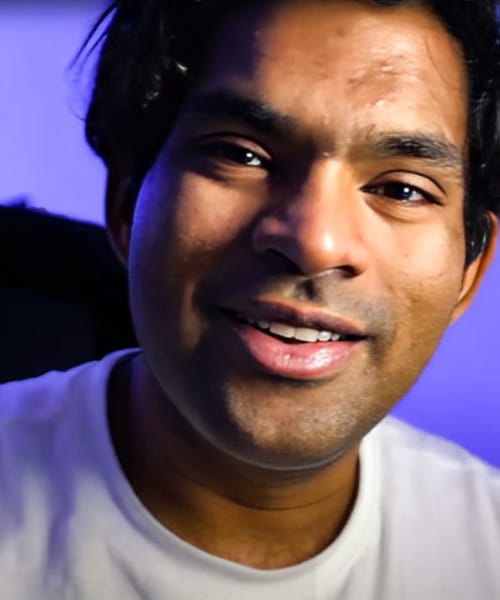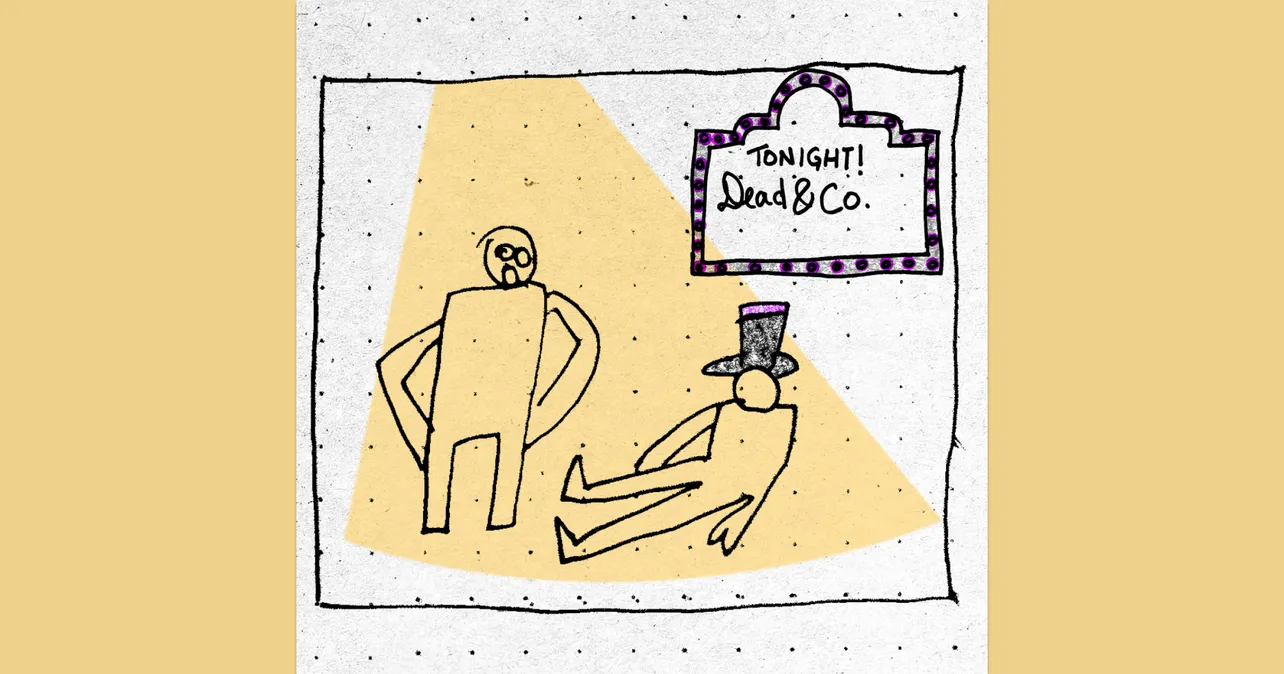Since I’ve been using various examples from my own work in this column, I thought I’d continue that trend and explain my current work in progress: how I’ve gotten there, and where we’re going. In the process, I’ll explain some things that will make you lean in—some people more than others—and give you a surprising historical precedent.
It all began when I watched a juggling show by my friend Benjamin Domask-Ruh in 2022. His two-person performance, although completely silent, told a story of grief as the characters dealt with the death of a friend. He did it all through a mixture of theatrical design, music, and juggling. It was beautiful stuff. That show, coupled with my love of the images from Weekend at Bernie’s, gave me an idea for a magic show that deals with similar themes—but with a very different tone. Flash forward to 2025, and I finally had the opportunity to write it. Over dinner one night, I started pitching ideas to a local improv comedian who wanted to collaborate. To my joyous surprise, he loved the idea of being dead on stage for 55 minutes. So now, I’m working on putting this show on stage. Working title: Dead & Co.
Since this is the only thing ringing around in my head right now, I figured I’d share some concepts my writing partner Caleb Sharp and I learned while bringing this idea to life. Let’s start by asking, how does one approach creating a magic show? For most magicians, we take tricks we’ve honed, then find themes to tie them all together. This becomes our show. But Caleb and I work a little differently. We’re both theater and musical nerds. So, we place characters first, then we find themes to explore, which we then tie together with magic.
Caleb and I often talk about how stories are only interesting when the people in them are interesting, so our first step is in defining who these people are. Then, the themes create the situations for these people. So if we’re talking about immigration, maybe this person got stopped by ICE at the airport. If we’re talking about regret, maybe this person is listening to or watching home movies of his life.
But, inspired by musical theater, magic is often the expression or solution to whatever conflict the theme creates for our character. Maybe the person watching home movies is practicing a magic trick. Or the person stopped by ICE was let go after showing them a magic trick. (This actually happened to me during less confusing times.) The rest is just a matter of writing the plot and creating a beat sheet for the magic. This approach allows us to create a layer of storytelling for tricks that would otherwise come across as “watch me do this” effects. So, audiences now have something to attach the magic to, as the magic serves as a tool for our character’s expression. We’ve found that this approach works well to create stand-alone pieces, making our shows feel like a collection of short stories.
But, with this show, we needed to change our approach. Dead & Co. is not a collection of short stories. Because of our characters, this show has to be treated like a straight play.

